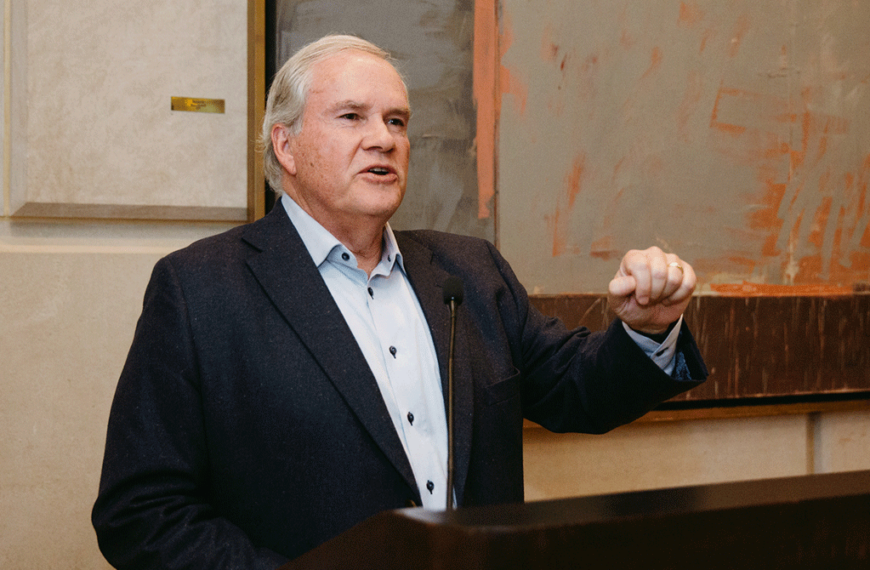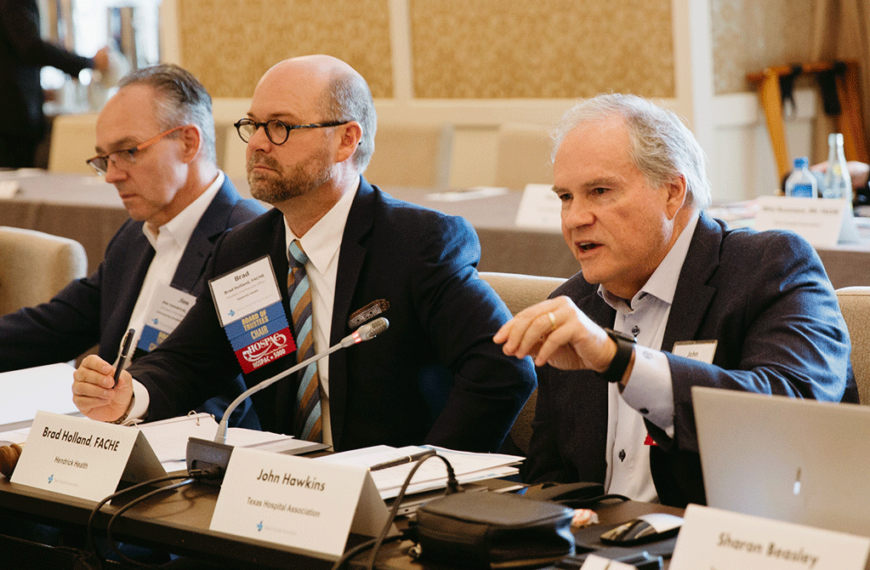Since talk of a major congressional budget package began several months ago, our Texas Hospital Association has been stressing that Medicaid – the source of health coverage for more than 4 million Texans – couldn’t handle a seismic and sudden upset.
Based on where things stand at this writing, we’ve made progress. But there’s a long way to go, and the future of Medicaid funding in Texas is still at stake.

That’s why our THA is warning congressional lawmakers about the dramatic and detrimental impact of policy proposals to enact deep cuts to Medicaid as leaders in both chambers rapidly pursue the reconciliation bill with a tentative July 4 target for passage.
At press time, the U.S. House Energy & Commerce Committee had just advanced legislation that reforms the Medicaid program yet takes into account some of the points THA has been making to members of the Texas congressional delegation in recent months.
THA supports and is committed to finding efficient, effective and sustainable solutions for Medicaid. But we’ve stressed that the need for stability and equitable financing in the health care system demands a careful, “do no harm” approach, because a disruption to our funding systems is a disruption to patient care everywhere.
The budget framework agreed on by the House and Senate includes a savings directive to the House Energy & Commerce Committee, which oversees Medicaid and other programs, to find at least $880 billion in savings. We’ve seen several different angles proposed to enact deep Medicaid cuts. For example, one troubling proposal would reduce or eliminate the permissible tax collections on providers themselves that help fund the nonfederal share of Medicaid. The bill approved by the committee shows our advocacy has borne fruit. It grandfathers existing taxes and freezes them at current levels, ensuring a critical method of financing Medicaid in Texas can continue. We’re working to make any provisions related to provider taxes as non-disruptive to hospital funding as possible.
Our THA team continues to engage with Texas representatives in Washington, D.C. – across both parties and in the House and Senate – to encourage a careful approach to arriving at greater efficiency in Medicaid while protecting the health and safety of Texans. Keeping what works is a crucial piece of the puzzle. We believe Texas should be recognized for its approach to operating Medicaid, which prioritizes a lean benefit package with coverage for the most vulnerable Texans; transparency requirements that show how local provider taxes are used; and financing that relies on hospital-funded payments to pull down federal matching dollars, rather than by raising taxes or using dedicated general revenue.
There’s no question that more effective, more efficient versions of our federal health programs are out there, with solutions waiting to be realized. But when health and lives are at stake, abrupt disruptions that affect care delivery – such as dramatic funding decreases, or an administrative upset – aren’t an option.
There are still miles left on the road ahead before this pivotal bill reaches the finish line. Let’s ensure Congress hears us as we call for lawmakers to give these programs the consideration and care that Texans who rely on them deserve.
Related articles from CEO Messages
Preventing New Plagues: THA Committed to Defending Time-Tested Vaccines
Typically, policy disagreements we at the Texas Hospital Association have…
Bollard Mandates for Hospitals Would Be a Barrier to Care
It’s not uncommon for the Texas Legislature to lay an…
Congress Must Protect Our Health Care Safety Net
Figuratively, we in the health care world call it the…
A Healthier State: THA’s Broad and Ambitious Priorities for the 2025 Texas Legislature
We’re now past the general election, and Texans across the…
Saving the Savings: Keep the 340B Drug Program Accessible for Our Hospitals and Patients
It’s a tricky thing to set up any program –…
Clearing the Pipeline: Workforce Shortages Still Haunt Texas Hospitals
Earlier this month, the Governor’s Task Force on Health Care…







